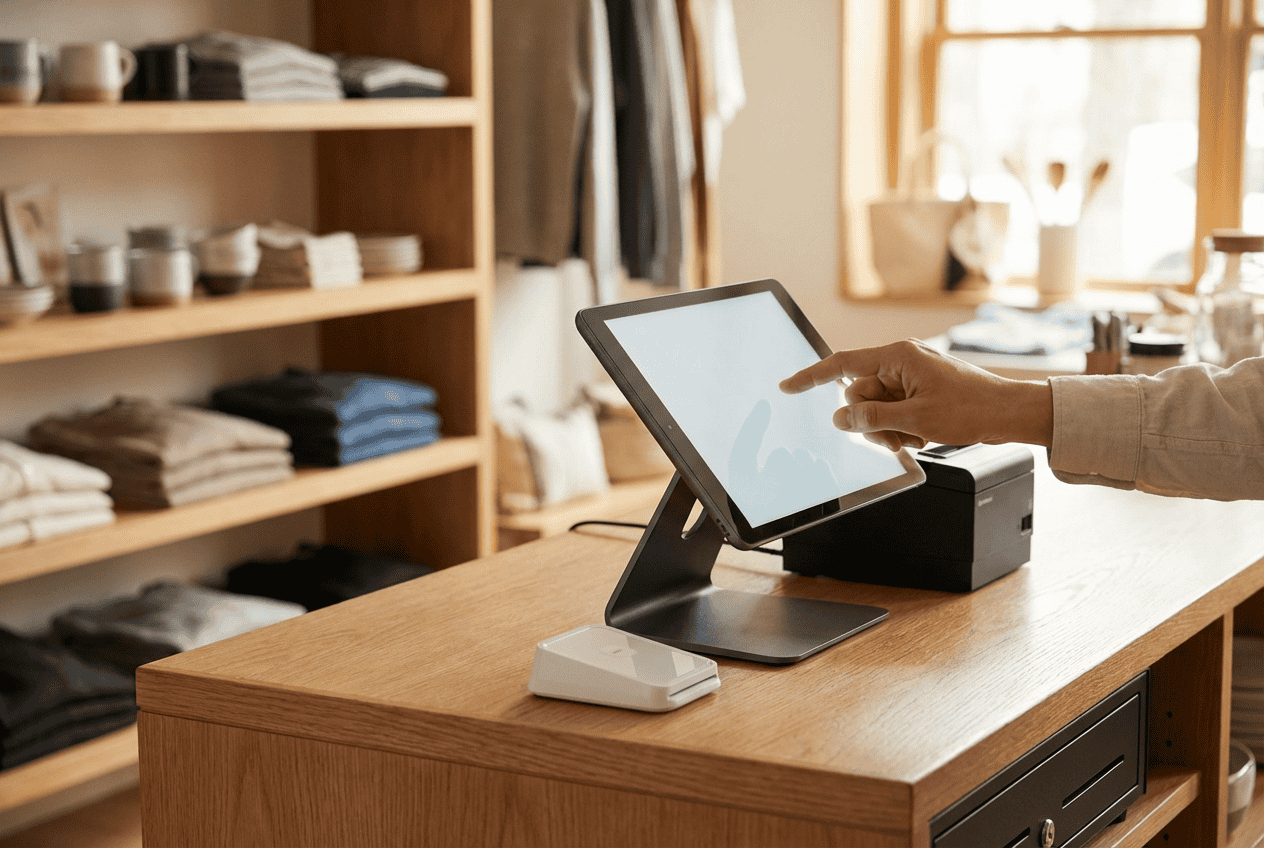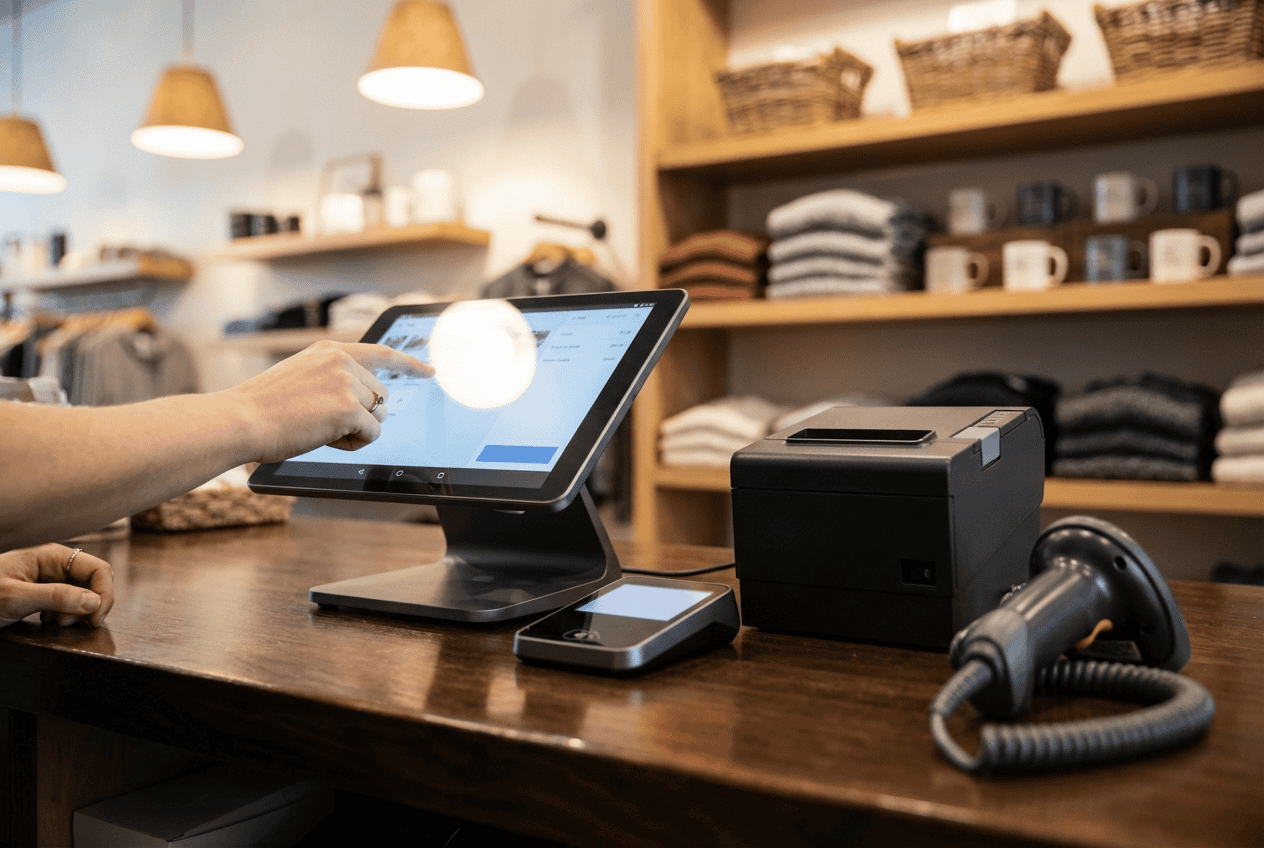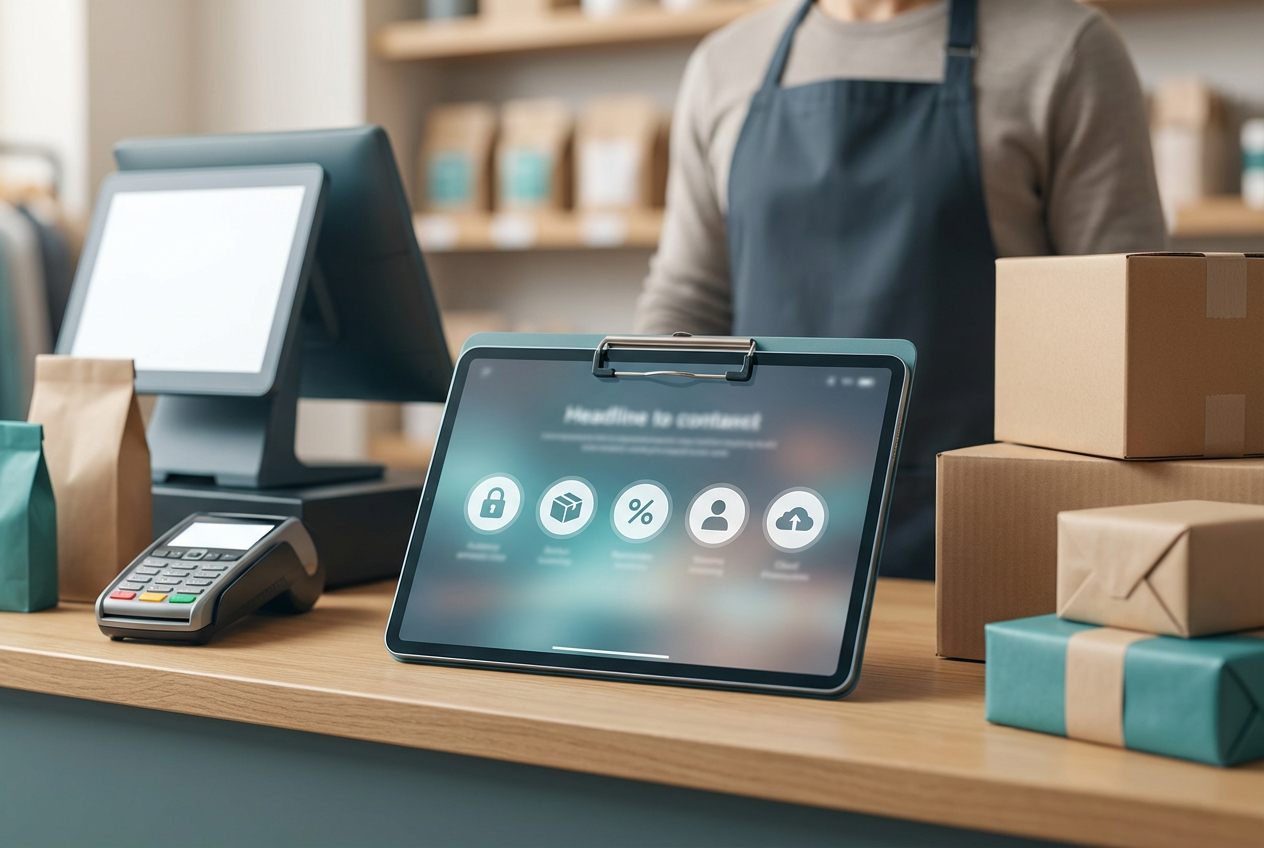Furniture retail in Thailand faces unique challenges, including managing diverse product variants and custom orders, as well as handling logistics for bulky items. The suitable furniture POS software Thailand integrates payments, and customer data while adapting to local market conditions. Understanding these demands helps businesses adopt a solution that supports operational efficiency and drives growth in a competitive landscape.
This guide aims to provide furniture retailers with a comprehensive framework to evaluate POS software options that align with Thailand’s retail landscape and long-term growth objectives.
Highlights:
- A solid POS system for furniture in Thailand should support custom orders, offer flexible payment options, manage warehouse control, and provide seamless integrations, with an easy-to-use, mobile-friendly interface.
- When assessing POS providers, consider scalability, local support, transparent pricing, and whether a cloud or on-premise setup fits your store’s needs best.
Understanding the Needs of Furniture Retail in Thailand
Thailand’s furniture industry is projected to reach USD 2.41 billion by 2033, growing at a compound annual growth rate (CAGR) of 4.1% from 2024 to 2033. This growth is driven by urbanization, increasing disposable incomes, and a shift towards sustainable and modular furniture designs.

However, the local business environment reveals a fragmented market, where small enterprises account for 92% of Thailand’s home improvement and furniture sector, while large companies comprise only 1%. This structure encourages competition and innovation but makes scaling and standardizing processes difficult.
Growth in the sector is driven by urbanization and housing expansion, resulting in increased demand for both mass-produced and custom furniture. Environmental issues, such as deforestation and resource depletion, create risks that require furniture businesses to adapt to shifting consumer preferences and stricter regulations on sustainable sourcing and production.
Addressing these challenges requires a comprehensive approach that includes adopting sustainable practices and investing in technologies that support traceability and compliance. Retailers are now seeking technologies that support traceability, enhance stock visibility, and streamline compliance. A furniture POS software Thailand helps address these requirements and contributes to long-term viability.
Key Features To Look For In A Furniture Pos Software Thailand
When evaluating POS software for furniture stores in Thailand, focus on features that can handle complex product catalogs, high-value transactions, and multi-location operations with ease.
Custom Order And Quotation Management
Handling custom orders in the furniture retail industry requires a system capable of managing detailed variations in size, material, and design. Accurate configuration tools that adjust pricing and timelines based on customer choices help prevent errors and delays. When quotations adapt dynamically to changes, sales teams can maintain clear communication so that customers receive precise and consistent information.
Integrating custom order management into the POS workflow lowers the chance of mistakes and simplifies approval steps. This approach builds customer trust and helps maintain steady order fulfillment, contributing to business reliability.
Flexible Payment Handling
Furniture purchases often involve complex payment structures such as deposits, installment plans, or trade-in deals. The furniture POS software in Thailand is designed to meet the sector’s needs, accommodating varied payment methods and tracking financial transactions accurately. Transparent payment handling improves cash flow management and helps maintain clear financial records.
►►► Optimal solution set for businesses: Multi store POS, Next-gen POS, Inventory Management Software (MSI), Self Service, Automation, Backorders

Supporting flexible payment options fosters customer confidence by providing clear billing and payment tracking throughout the purchase lifecycle. This adaptability benefits both staff and customers by simplifying what can otherwise be complicated financial arrangements.
Inventory And Warehouse Management
Furniture inventory often includes diverse variants stored across several locations, each requiring precise tracking. Effective systems maintain up-to-date stock levels, locations, and supplier details, enabling better decision-making around replenishment and avoiding costly overstock or shortages. Coordination of warehouse transfers and buffer stock helps address logistical challenges, particularly when delivery lead times fluctuate across different regions.
Linking inventory management with sales and fulfillment operations improves responsiveness and reduces friction in supply chains. This connection is essential for furniture retailers, particularly those handling bulky items and facing storage limitations, as it supports smoother operations and ensures timely deliveries.
For example, the furniture retailer can use a POS system like ConnectPOS to track inventory across three warehouses. When someone places an online order, the system checks all locations and selects the nearest one for shipping. If stock was low at that site, the system arranged a transfer from another warehouse. This setup helped keep orders on schedule and prevented missed sales due to unavailable items.
Integration With Other Tools
A furniture POS software in Thailand should integrate with ERP, accounting, CRM, and e-commerce platforms to maintain consistent information across the business. Integration avoids duplication; thus, managers can track sales, inventory, and financial data in one place. This approach supports better planning and quicker responses.
Disconnected tools lead to delays, errors, and limited visibility across departments. When systems communicate, teams can share data easily and act faster.
Thai furniture retailers can link their POS with SAP ERP, Xero for accounting, Salesforce for CRM, and their Shopify store. As a result, stock updates on the POS reflected immediately on the online store, accounting records updated automatically after each sale, and customer details synced with the CRM. The team no longer had to re-enter data between systems, which helped speed up their work and avoid mistakes.
User-Friendly Interface And Mobility
Complex furniture retail tasks become manageable through an intuitive POS interface designed for ease of use. Reducing training time and errors, such interfaces empower employees to focus on customer service and operational efficiency. Mobility extends these benefits beyond the counter, enabling sales and inventory management on the showroom floor or remote locations.
Mobile access reflects the dynamic nature of furniture retail, where customer engagement often requires flexibility. Equipping staff with accessible tools fosters productivity and enhances the overall shopping experience.
Evaluating Providers For Furniture POS Software Thailand
Selecting a furniture POS software Thailand provider requires careful consideration of factors that affect scalability, support, cost, and deployment. Each element influences how well the system fits the furniture retail environment in Thailand, addressing local business needs and market conditions.
- Scalability and Customization: The POS should handle growth from single stores to chains, adapting to Thailand’s fragmented market. Custom workflows for managing furniture variants, order complexity, and multi-warehouse logistics prove beneficial.
- Local Support and Training: Providers with local offices or partners can offer faster response times, understand regional tax rules like VAT (PPN), and provide staff training aligned with Thai language and business practices.
- Pricing Transparency: Transparent pricing models prevent unexpected fees common in the region. Retailers should look for clear breakdowns of subscription, integration, hardware, and support costs.
- Cloud vs On-Premise Solutions: Cloud options suit businesses seeking lower upfront investment and remote management, while on-premise setups appeal to retailers with strict data control requirements or limited internet access in some areas.
Why ConnectPOS Is A Smart Choice For Furniture Stores In Thailand
ConnectPOS revolutionizes furniture retail with a modern, all-in-one POS system tailored to meet the unique needs of the industry. Tailored features focus on improving operational workflows and customer satisfaction.
- Futuristic Ecosystem: Combines omnichannel POS, mobile solution, and self-checkout options, elevating the retail experience and speeding up the purchase journey.
- Automatic Workflow: Simplifies inventory, transactions, and customer data management, freeing staff to focus on growth and insights.
- Scalable and Configurable: Expands easily with growing inventory, sales volume, and changing processes, adapting to business needs.
- Modular and Cloud-Based: Furniture POS software Thailand provides extensive integrations to manage everything from suppliers to sales in one unified platform.
- Efficient Order Fulfillment: Automates and tracks orders accurately within expected timeframes, improving customer satisfaction.
- Supplier and Warehouse Management: Handles multiple vendors, warehouse transfers, and custom orders efficiently to reduce stock issues.
- Flexible Payment Methods: Supports split payments, layaways, deposits, and Buy Online Pickup In Store (BOPIS), offering customers various transaction options.
- Omnichannel Visibility: Enables online ordering with in-store pickup and full control over customer requests across channels.
- Customer Engagement Tools: Includes self-checkout, personalized product recommendations, loyalty programs, reward points, and gift cards to enhance repeat business.
- Deep Integrations: Connects with popular e-Commerce POS platforms, ERP, payment gateways, accounting, and CRM systems, ensuring smooth data flow and compliance with regional laws.
- Custom POS: Allows product attribute customization, e-receipts aligned with local regulations, and other features tailored to furniture retail needs in Thailand.
ConnectPOS pricing is designed to suit businesses of various sizes, offering flexible plans based on features and scale. Pricing generally depends on the number of stores, registers, and specific integrations required by the retailer.
FAQs: Furniture POS Software Thailand
What deployment options are available, and which suits Thai furniture retailers best?
Cloud-based POS solutions provide easier scalability, remote access, and automatic updates, which benefit retailers with multiple locations or growing inventory. On-premise systems may appeal to those preferring direct control over data and hardware, but they often require larger upfront investments and IT maintenance.
How does furniture POS software Thailand help manage logistics and supply chain challenges in Thailand?
Furniture stores face long lead times, delivery complexities, and supplier fragmentation. POS solutions that integrate inventory tracking with supplier management, warehouse transfers, and order fulfillment scheduling can reduce delays and errors. Real-time visibility across all locations supports better planning and responsiveness.
What are the key pricing considerations when selecting a point-of-sale (POS) system for furniture retail in Thailand?
Look beyond upfront costs. Consider subscription fees, hardware expenses, integration charges, and ongoing support. Transparent pricing without hidden fees is essential. Customization needs and scalability impact the total cost of ownership as the business evolves.
Can POS software improve customer experience in furniture stores?
Yes, by offering flexible payment options, supporting omnichannel sales including BOPIS (buy online, pick up in-store), and enabling personalized recommendations and loyalty programs. Self-checkout features and mobile app integration can accelerate the purchase process and boost satisfaction.
Conclusion
A furniture POS software Thailand shapes how businesses handle complexity and customer expectations. Integrating key functions like inventory control, payment flexibility, and data insights within one platform allows stores to respond to market changes with agility. Investing in a solution aligned with industry specifics and local dynamics helps furniture retailers strengthen their position and unlock new growth opportunities.
ConnectPOS delivers a scalable, customizable platform designed specifically for furniture stores, combining omnichannel capabilities with advanced inventory and order management. Explore how ConnectPOS can support your business growth and simplify operations. Get in touch today to learn more.
►►► Optimal solution set for businesses: Shopify POS, Magento POS, BigCommerce POS, WooCommerce POS, NetSuite POS, E-Commerce POS




